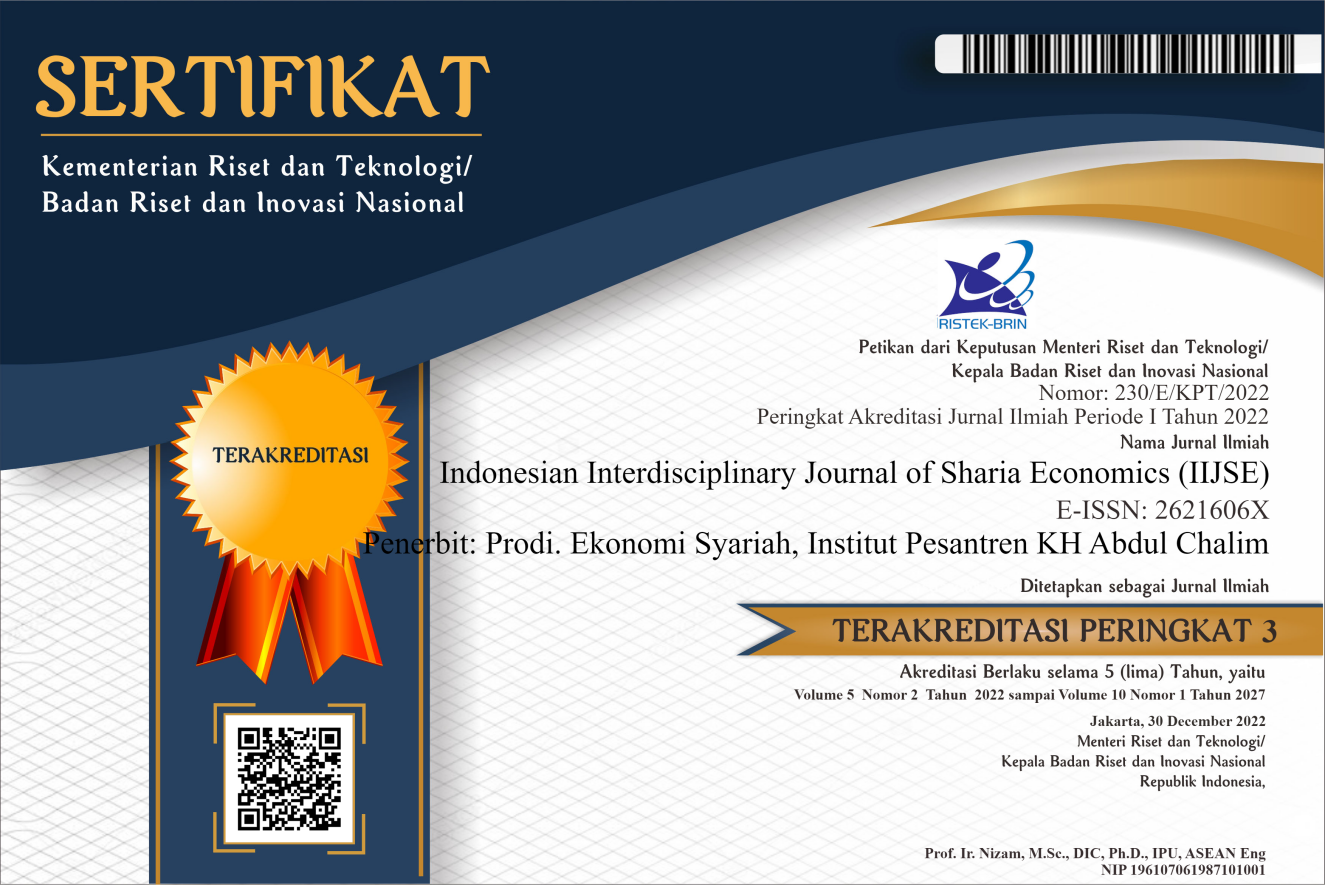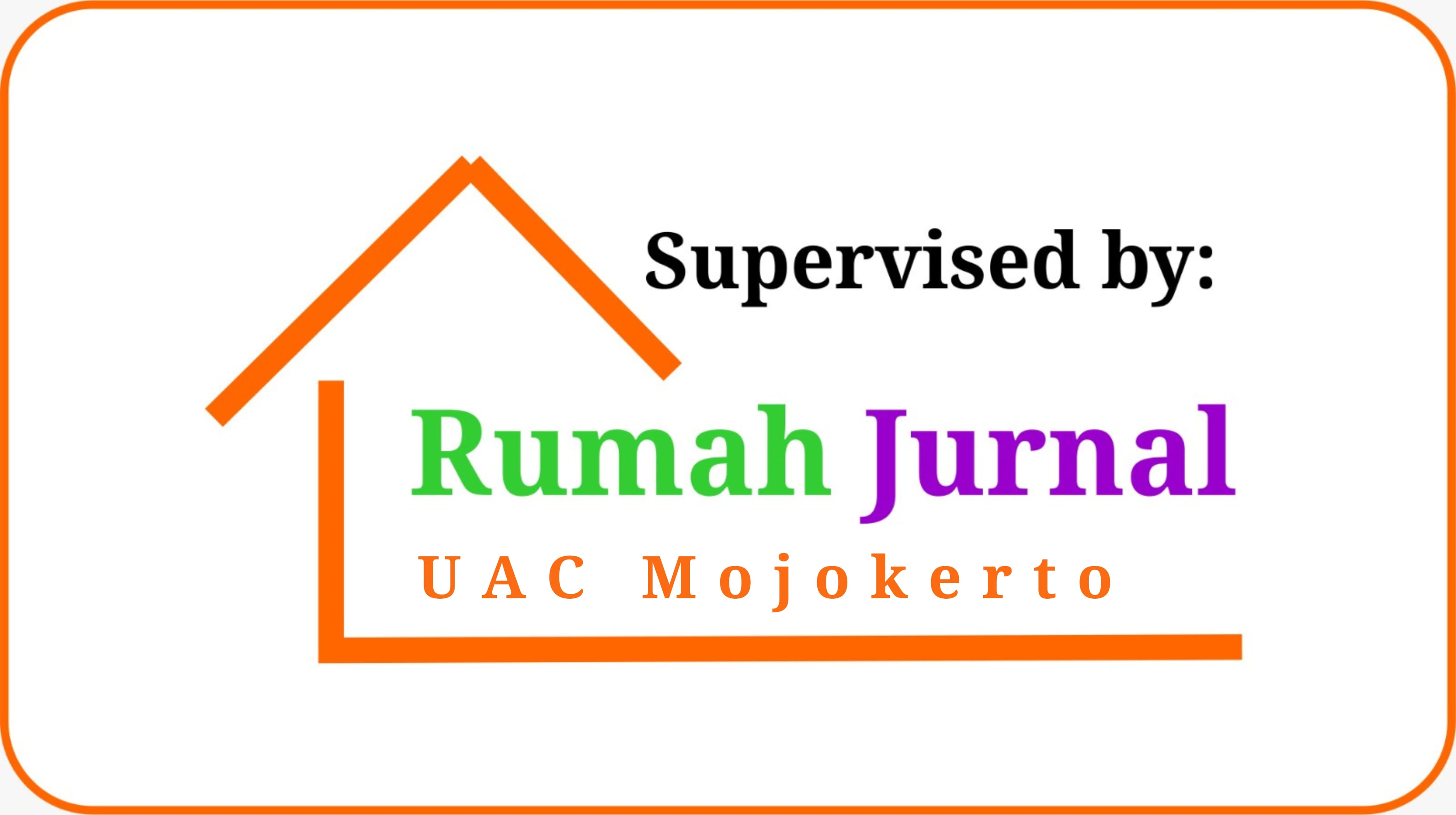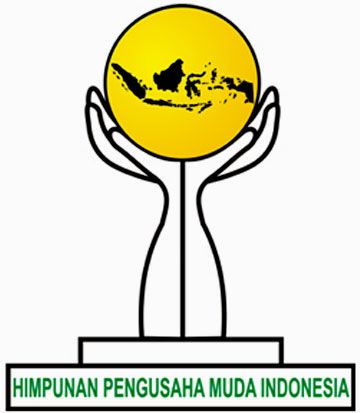Predicting Innovative Work Behavior Through the Perspective of Knowledge Sharing, Perceived Organizational Support, and Psychological Empowerment (Study at The National Narcotics Agency for The Special Region of Yogyakarta)
Abstract
This research aims to determine the influence of Knowledge Sharing, Perceived Organizational Support, and Psychological Empowerment on Innovative Work Behavior in employees of the National Narcotics Agency for the Special Region of Yogyakarta. The population was all employees of the Provincial National Narcotics Agency as well as employees of the Regency/City National Narcotics Agency in the Special Region of Yogyakarta. The sample measurement technique uses the Slovin formula because the population is known for certain. The sample was 131 employees of the Yogyakarta Special Region National Narcotics Agency, including employees of the Provincial National Narcotics Agency and Regency/City National Narcotics Agency. The sampling technique uses simple random sampling as a data collection method. Hypothesis testing with multiple regression analysis using the Statistical Package for Social Sciences (SPSS). The research results show that Knowledge Sharing has a positive and significant effect on Innovative Work Behavior, Perceived Organizational Support has a positive and significant effect on Innovative Work Behavior, and Psychological Empowerment has a positive and significant effect on Innovative Work Behavior. The three variables simultaneously have a positive and significant effect on Innovative Work Behavior. It is hoped that the results of this relationship research can contribute to theory and practice for organizations in improving Innovative Work Behavior.
Downloads
References
Ali, M. M., Ali, A., dan Ahamat, A. (2022). Career Success Through Leadership, Innovative Work Behavior, and Motivation in the UAE. Specialusis Ugdymas Special Education, Volume 1 (43), p7843-7858.
Almulhim, A. F. (2020). Linking Knowledge Sharing to Innovative Work Behaviour : The Role of Psychological Empowerment. Journal of Asian Finance, Economics, and Business, Volume 7 (9), p549-560. https://doi.org/10.13106/jafeb.2020.vol7.no9.549
Anser, M. K., Yousaf, Z., Yasir, M., Sharif, M., Nasir, M. H., Rasheed, M. I., Waheed, J., Husain, H., dan Majid, A. (2022). How to Unleash Innovative Work Behaviour of SME’s Worker Through Knowledge Sharing ? Accessing Functional Flexibility as a Mediator. European Journal of Innovation Management, Volume 25 (1), p233-248. https://doi.org/10.1108/EJIM-11-2019-0332
Asurakkody, T. A. dan Kim, S. H. (2020). Effect of Knowledge Sharing Behaviour on Innovative Work Behaviour Among Nursing Students : Mediating Role of Self Leadership. International Journal of Africa Nursing Sciences, Volume 12, p1-6. https://doi.org/10.1016/j.ijans.2020.100190
Cetinkaya, B., dan Yesilada, T. (2022). Inclusive Leadership and Employee Innovative Work Behaviours : Testing a Psychological Empowerment and Leader Member Exchange Moderated Mediation Model. Journal of Psychology in Africa. Volume 32 Issue 1, p15-20. https://doi.org/10.1080/14330237.2021.2002035
Chen, H. (2001). Knowledge Management Systems : A Text Mining Perspective. Tucson : The University of Arizona.
Chiang, H. H., Han, T. S., dan Chuang, J. S. (2011). The Relationship Between High Commitment HRM and Knowledge Sharing Behaviour and It’s Mediators. International Journal of Manpower,Volume 32 (5), p604-622. https://doi.org/10.1108/01437721111158224
Conger, J. A., dan Kanungo, R. N. (1988). The Empowerment Process : Integrating Theory and Practice. Academy of Management Review, Volume 13 (3), p471–482. https://doi.org/10.2307/258093
Cummings, J. L., dan Teng, B. S. (2003). Transferring Risset and Development Knowledge : The Key Factors Affecting Knowledge Transfer Success. Journal of Engineering and Technology Management – JET-M, Volume 20 (1-2 SPEC.), p39-68. https://doi.org/10.1016/S0923-4748(03)00004-3
Damodaran, L., dan Olphert. W. (2000). Barriers and Facilitators to The Use of Knowledge Management Systems. Behaviour and Information Technology, Volume 19 (6), p405-413. https://doi.org/10.1080/014492900750052660
Davis, K., Neistorm, J. W. (1997). Organizational Behavior: Human Behavior at Work. (10.ed.), New York : Mc Graw-Hill.
Eisenberger, R., Huntington, R., Hutchison, S., dan Sowa, D. (1986). Perceived Organizational Support. Journal of Applied Psychology, Volume 71 (3), p500–507. https://doi.org/10.1037/0021-9010.71.3.500
Farr, J. L., dan Ford, C. M. (1990). Individual Innovation. In West, M. A and Farr, J. L. Eds. Innovation and Creativity at Work : Psychological and Organizational Strategies (pp. 63-80), Chicester : Wiley.
Ferdinand, A. (2014). Metode Penelitian Manajemen, Pedoman Penelitian Untuk Skripsi, Tesis, dan Disertasi Ilmu Manajemen. Semarang : Universitas Diponegoro.
Ghozali. (2006). Analisis Data Penelitian Menggunakan SPSS. Yogyakarta : Universitas Atma Jaya.
Ghozali, I. (2008). Structural Equation Modelling, Edisi II, Semarang : Universitas Diponegoro.
Hazem, A., Ashly, P., Abdelmounaim, L. (2021). The Mediating Role of Psychological Empowerment in the Relationship Between Knowledge Sharing and Innovative Work Behaviour. International Journal of Innovation Management, Volume 25 (02), p1-31. https://doi.org/10.1142/S1363919621500146
Hoegl, M., Parboteeah, K. P., dan Munson, C. L. (2003). Team Level Antecedents of Individuals Knowledge Networks. Decision Sciences, Volume 34 (4), p741-770. https://doi.org/10.1111/j.1540-5414.2003.02344.x
Hong, L. (2022). The Mediating Role of Organizational Culture (OC) on the Relationship between Organizational Citizenship Behavior (OCB) and Innovative Work Behavior (IWB) to Employee Performance (EP) in Education Sector of Malaysia. Global Business and Management Research: An International Journal Volume 14 (3s), p1022-1043.
Hoof, B. V. D.; dan Ridder, J. A. (2004). Knowledge Sharing in Context : The Influence of Organization Commitment, Communication Climate, and GMC Use on Knowledge Sharing. Journal of Knowledge Management Volume 8 (6), p117-130. https://doi.org/10.1108/13673270410567675
Huber, D.L (2006). Leadership and Nursing Care Management (3rd ed). Philadelphia : Sauders Elsevier.
Jambak, M. I. (2017). Pengaruh Anteseden Perilaku Berbagi Pengetahuan Terhadap Keunggulan Kompetitif Organisasi. Journal of Management and Business Review 1, p285-305. https://doi.org/10.34149/jmbr.v14i2.106
Janssen, O. (2000). Job Demands, Perceptions of Effort - Reward Fairness and Innovative Work Behaviour. Journal of Occupational and Organizational Psychology, Volume 73, p287–302. https://doi.org/10.1348/096317900167038
Javed, B., Abdullah, I., Zaffar, M. A., Haque, A., dan Rubab, U. (2019). Inclusive Leadership and Innovative Work Behaviour : The Role of Psychological Empowerment. Journal of Management and Organization , Volume 25 , Special Issue 4: Neurodiversity, p554-571. https://doi.org/10.1017/jmo.2018.50
Jha, S. (2014). Transformational Leadership and Psychological Empowerment. South Asian Journal of Global Business Research, Volume 3 (1), p18-35. https://doi.org/10.1108/SAJGBR-04-2012-0036
Jong, J. P. J. (2007). Individual Innovation, The Connection between Leadership and Employee’s Innovative Work Behavior. Amsterdam : University of Amsterdam.
Jong, J. D., and Hartog, D. D. (2010). Measuring Innovative Work. Creativity And Innovation Management, Volume 19 (1), p23-36. https://doi.org/10.1111/j.1467-8691.2010.00547.x
Kese, M. L., Hidayat, D. (2021). Pengaruh Kepemimpinan Transformasional, Budaya Organisasi, dan Motivasi terhadap Perilaku Berbagi Pengetahuan. Scholaria: Jurnal Pendidikan dan Kebudayaan, Volume 11 (2), p154-165.
Khan, S. N. (2022). Organizational Factors and Their Effects on Innovative Work Behaviour Among Malaysian Special Needs School Teachers : A Literature Review and Model Development. Global Business and Management Research: An International Journal, Volume 14 (3s), p642-654.
Khan, Z. A., Yasir, M., Majid, A., dan Afridi, S. A. (2019). Talent Management Practices, Psychological Empowerment and Innovative Work Behaviour : Moderating Role of Knowledge Sharing. City University Research Journal Volume 9 (3). P567-585.
Kwahar, N., dan Iyortsuun, A. S. (2021). Perceived Organizational Support, Psychological Empowerment, and Innovative Work Behaviour of Academic Staff of Private Polytecnics in Nigeria. Innovative Journal of Management and Business Education, Volume 7 (1), p84-97.
Latupapua, C. V., Hiariey, H., Larwaku, H. (2021). Efek Mediasi Komitmen Organisasi pada Pengaruh Kepercayaan Organisasi terhadap Perilaku Berbagi Pengetahuan. Jurnal Konsep Bisnis dan Manajemen, Volume 7 (2), p206-214. https://doi.org/10.31289/jkbm.v7i2.5245
Li, J., Qin, J. (2022). Effect of Theacher’s Knowledge Sharing Behaviour on Students Entrepreneurial Motivation in Social Media Environment. International Journal of Emerging Technologies in Learning. 2022, Volume 17 (2), p143-157. https://doi.org/10.3991/ijet.v17i02.28553
Lin, H. F. (2007). Knowledge Sharing and Firm Innovation Capability : An Empirical Study. International Journal of Manpower, Volume 28, p315-332. https://doi.org/10.1108/01437720710755272
Liang, W., Lv, C., Yu, Y., Li, T., dan Liu. P. (2021). Leader’s Implicit Followership and Employee’s Innovative Behaviour : Chain Mediation Effect of Leader Member Exchange and Psychological Empowerment. Frontiers in Psychology, Volume 13, p1-10. https://doi.org/10.3389/fpsyg.2022.815147
Lutfi, S., Ahmet, M., dan Harun, S. (2021). The Influence of Transformational Leadership on Employees’ Innovative Behaviour in the Hospitality Industry : The Mediating Role of Leader Member Exchange. Tourism (13327461) Volume 69 Issue 1, p19-31. https://doi.org/10.37741/t.69.1.2
Luthans, F., Avolio, B. J., Avey, J. B., dan Norman, S. M. (2007). Positive Psychological Capital: Measurement and Relationship with Performance and Satisfaction. Personnel Psychology, Volume 60, p541–572. https://doi.org/10.1111/j.1744-6570.2007.00083.x
Meyerson, S. L., dan Kline, T. J. (2008). Psychological and Environmental Empowerment : Antecedents and Consequences. Leadership and Organization Development Journal, Volume 29 (5), p444-460. https://doi.org/10.1108/01437730810887049
Mathafena, R. B. dan Grobler, A. (2021). Perceived Organization Support and Leader Member Exchange in Cultivating Innovative Work Behaviour in South African Organization. African Journal of Science, Technology, Innovation and Development, Volume 13 Issue 5, p559-571. https://doi.org/10.1080/20421338.2020.1793466
Mustika, S. I., Rahardjo, K., dan Prasetya, A. (2019). The Effect of Perceived Organization Support on Knowledge Sharing and Innovative Work Behaviour. Advances in Economics, Business and Management Research, Volume 154, p61-64.
Nazir, F., Shafi, A., Atit, M.M., Qun, W., dan Abdullah, M.M. (2019). How Organization Justice and Perceived Organization Support Facilitate Employee’s Innovative Behaviour at Work. Employee Relations, Volume 41 Issue 6, p1288-1311. https://doi.org/10.1108/ER-01-2017-0007
Neves, P. dan Eisenberger, R. (2014). Risk Taking in Organizations: The Contribution of Perceived Organizational Support. Journal of Managerial Psychology, 29, p187-205. https://doi.org/10.1108/JMP-07-2011-0021
Qi, L., Liu, B., Wei, X. dan Hu, Y. (2019). Impact of Inclusive Leadership on Employee Innovative Behaviour : Perceived Organization Support as a Mediator. Plos one 14(2) : e0212091, p1-11. https://doi.org/10.1371/journal.pone.0212091
Panahi, S., Watson, J., Partridge, H. (2012). Towards Tacit Knowledge Sharing Over Social Web Tools. Journal of Knowledge Management, Volume 17 (3), p379-397. https://doi.org/10.1108/JKM-11-2012-0364
Park, J., dan Kim, W. (2022). The Impact of Perceived Organizational Support on Innovative Work Behavior Through Psychological Empowerment : Focusing on the Moderated Mediating Role of Organizational Procedural Justice. Journal of Technical Education and Training, Volume 14 (1), p178-191. https://doi.org/10.30880/jtet.2022.14.01.015
Pratiwi, E. (2021). Exploration The Quality of Knowledge Sharing in Increasing Employees’ Innovative Behaviour. International Journal of Human Capital Management, Volume 5 (2), p.120-131. https://doi.org/10.21009/IJHCM.05.02.11
Puslitdatin BNN (2022). Survei Prevalensi Penyalahgunaan Narkoba Tahun 2021. Jakarta : Pusat Penelitian Data dan Informasi Badan Narkotika Nasional.
Puslitdatin BNN (2022). War On Drugs di Indonesia. Jakarta : Pusat Penelitian Data dan Informasi Badan Narkotika Nasional.
Rhoades, L., dan Eisenberger, R. (2002). Perceived Organizational Support: A Review of The Literature. Journal of Applied Psychology, Volume 87 (4), p698–714.
https://doi.org/10.1037/0021-9010.87.4.698
Sayyam., Khan, M. T., Adil, M., dan Begum, R. (2020). The Impact of Knowledge Sharing Behaviour on Project Team Performance : Mediating Project Team Effectiveness. Journal of Business and Tourism, Volume 6 (2), p101-115.
https://doi.org/10.34260/jbt.v6i2.157
Scott, S. G., dan Bruce, R. A. (1994). Determinants of Innovative Behaviour: A Path Model of Individual Innovation in The Workplace. Academy of Management Journal, Volume 37, p580-607. https://doi.org/10.2307/256701
Sekaran, U. (2006). Metode Penelitiaan Bisnis. Jakarta : Salemba Empat.
Shah, A., dan Hussain, N. (2021). An Empirical Study to Evaluate The Impact of Ethical Leadership on Organizational Citizenship and Innovative Behaviour : Mediated by Psychological Empowerment at the Workplace. Reviews of Management Sciences, Volume 4, p125-138. https://doi.org/10.53909/rms.04.01.0130
Spreitzer, G. M. (1995). Psychological Empowerment in the Workplace : Dimension, Measurement, and Validation. Academy of Management Journal,Volume 38 (5), p1442– 1465. https://doi.org/10.2307/256865
Copyright (c) 2023 Wahyu Rahmawati, Ema Nurmaya, Aftoni Sutanto, Abdul Choliq Hidayat

This work is licensed under a Creative Commons Attribution-ShareAlike 4.0 International License.
Authors who publish with this journal agree to the following terms:
- Authors retain copyright and grant the journal right of first publication with the work simultaneously licensed under a Creative Commons Attribution License that allows others to share the work with an acknowledgment of the work's authorship and initial publication in this journal.
- Authors are able to enter into separate, additional contractual arrangements for the non-exclusive distribution of the journal's published version of the work (e.g., post it to an institutional repository or publish it in a book), with an acknowledgment of its initial publication in this journal.
- Authors are permitted and encouraged to post their work online (e.g., in institutional repositories or on their website) prior to and during the submission process, as it can lead to productive exchanges, as well as earlier and greater citation of published work.


















